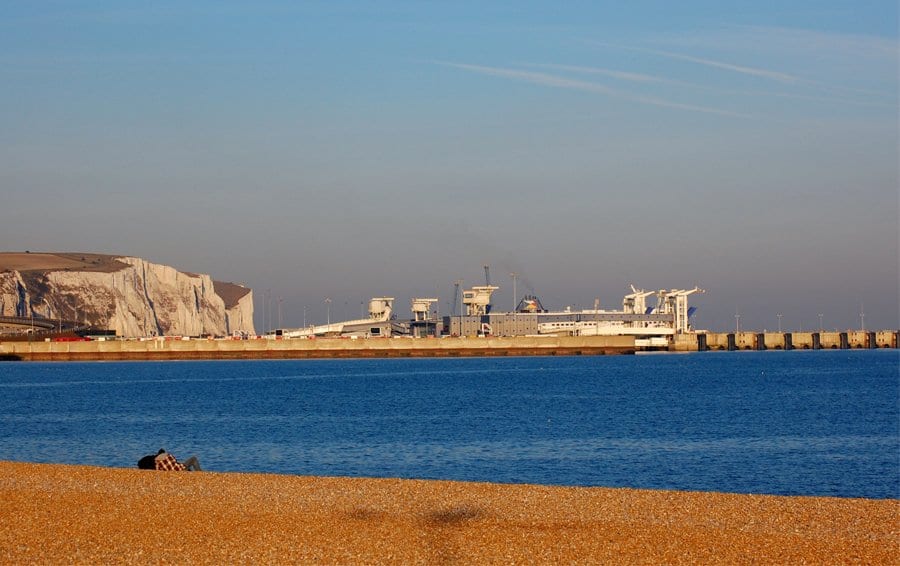A growing number of British online retailers are seeking to ease the extra customs and tax administration and costs involved in trading with the EU by shifting stock from UK warehouses to storage facilities on the Continent.
“The addition of VAT, customs duties, and in some cases tariffs, on shipments sent from the UK to customers across the channel – not to mention delays at ports and increased shipping costs – are prompting many businesses, including e-commerce firms, to reconfigure their European supply chains,” says Charlie Walker, marketing director of online fulfilment and logistics services specialist, Walker Logistics.
By fulfilling orders from distribution hubs located within mainland Europe, UK exporters are able to avoid the need for their EU-based customers to pay the VAT charges and customs duties which have been effective since 1 January.
“The changes to the tax regime are driving many online retailers and their logistics service partners to conclude that they have no option but to invest in distribution networks within the EU,” says Charlie Walker.
And, according to Charlie Walker, it is not just British companies that are opting to use European warehousing: he believes US and Asia-based traders who export to Europe are choosing to shift stock out of the UK too.
“Under the ‘rules of origin’ criteria that form part of the Brexit agreement, products that are not made in Britain, attract tariffs when re-exported from the UK into the European market,” he explains.
“So, by bringing products that are produced outside the EU and destined for the European market directly into the mainland – rather than exporting to the UK and re-exporting to the EU, companies can make significant tax savings,” he adds.
The supply chain stress of companies that export from the UK to the EU is being ramped up a few more notches by significant, yet under-reported, delays at many of the nation’s ports.
The hold-ups are a result of goods having the wrong, or incomplete, paperwork and although the UK Government has been happy to brush the problems off as mere teething trouble, the issue has become so bad that earlier this year DPD decided to put all UK to EU road deliveries on hold.
“The nation has, understandably, been so obsessed with the pandemic that the delays to freight at British ports since the start of this year have not been as big a story as they otherwise would be,” says Charlie Walker.
He continues: “It is frankly incredible that despite the long run up to Brexit, since the start of this year the increased bureaucracy involved in servicing customers in Europe, seems to have taken many exporters and courier companies by surprise.”
The big problem for carriers is that if just one parcel on a truck is lacking the correct paperwork then the whole truck can be held up at the border and potentially turned around and sent back to the depot.
Before it suspended its services, 20 per cent of DPD’s parcels had incorrect or incomplete data attached.
Charlie Walker says: “Everyone knew Brexit was coming so why didn`t couriers get their act together?”
To help online retailers and other exporters overcome the tax and customs issues and port delays, a number of UK order fulfillment, warehousing and logistics companies, such as Walker Logistics, are promoting the benefits of warehousing in Europe.
The Netherlands is proving an attractive location and with Rotterdam being Europe’s largest port and Schiphol airport in Amsterdam now one of the world’s major air freight hubs, its obvious that the country has a lot to commend it to the logistics community.
At the start of this year, Walker Logistics signed a partnership agreement with Dutch third party logistics services provider, RIF Europe. The deal allows Walker to offer its clients the opportunity to hold stock and fulfill orders bound for mainland Europe from RIF’s multi-user distribution hubs, which are located on the outskirts of Amsterdam close to Schiphol Airport.
Part of the RIF Group, RIF Europe provides end-to-end freight, logistics and fulfilment services. The company’s modern DCs provide in excess of 10,000 square metres of warehousing space.
Charlie Walker comments: “Our relationship with RIF Europe enables our UK-based customers that sell in to the markets of Europe to optimise their supply chain efficiency and make impressive cost savings.”
Walker has integrated its order processing systems with RIF’s, which means that the company’s clients’ relationship with their logistics provider is not affected. “Our clients continue to deal directly with us,” explains Charlie Walker.
Of course, the fall out from Brexit is also forcing Europe-based companies that export in to the UK to rethink their supply chain strategies and Charlie Walker says there is a trend – particularly among American-owned companies – to appoint UK-based fulfillment specialists to manage the storage and delivery of orders for the British market.
“It is the same situation but in reverse,” says Charlie Walker. “Previously these companies have located their European inventory in a facility within the EU but since Brexit many have been prompted to seek dedicated UK-based supply chain support and Walker has successfully managed a number of these migrations in recent months.”






